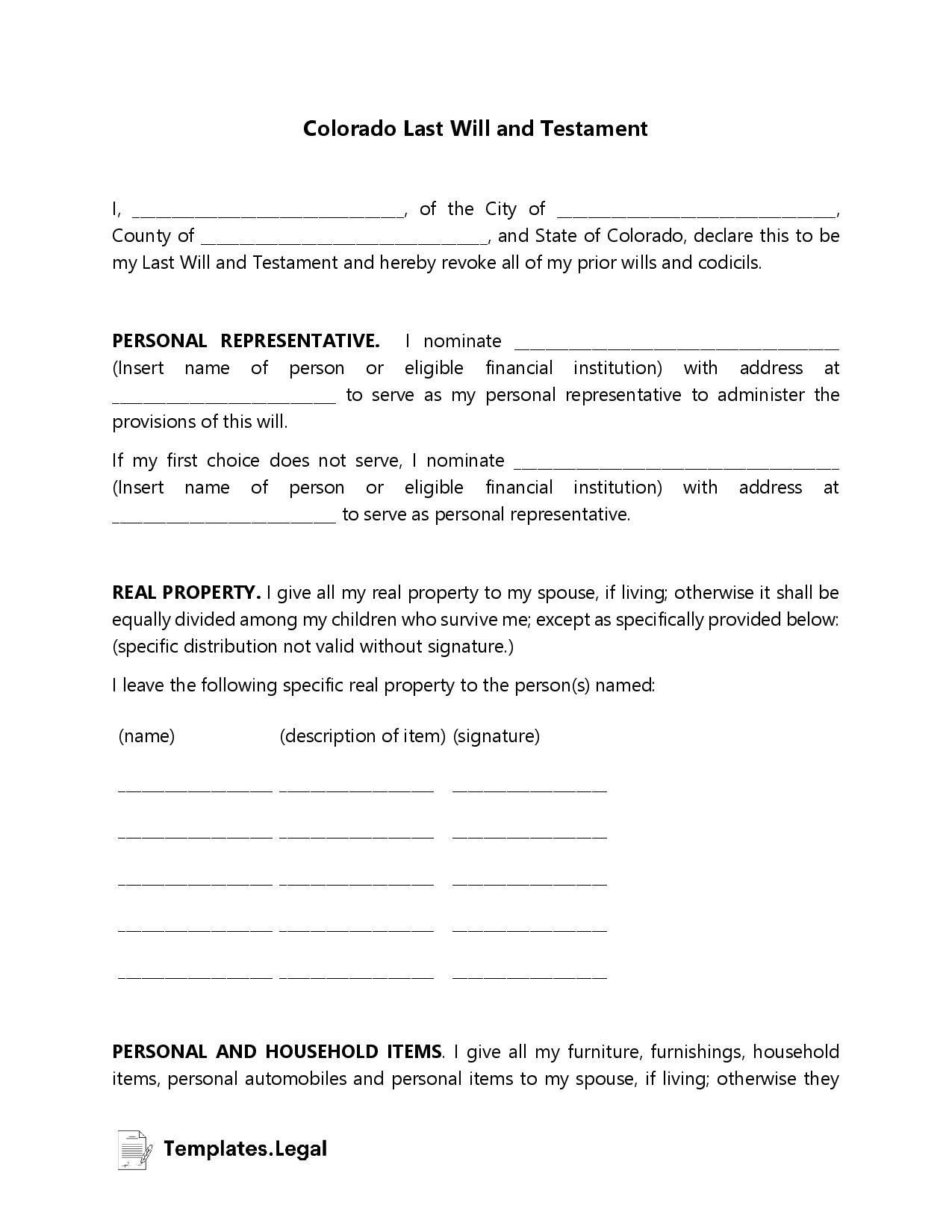Colorado Last Will and Testament
When it comes to a Colorado last will and testament, the state’s probate courts oversee the division of property and estates. The court handles estate and property divisions following the guidelines set forth by the testator, or the person who has made the will.
In Colorado, the last will and testament must be created by someone 18 years or older. The testator must be of sound mind and the will should be in writing for it to be valid. Colorado does not recognize or accept oral wills.
A Colorado last will and testament template may be used in the creation of a will. However, it is not required. If changes are required to the last will and testament form, Colorado requires an amendment signed in the same manner as the initial will.
Colorado Last Will and Testament Template
Requirements for a Will to be Valid in Colorado
For a will to be valid in Colorado, the testator must follow specific guidelines:
- Divide the desired property between inheritors
- Choose an executor
- Choose a guardian if children are present and underage
- Choose a manager for your children’s property
- Sign the will in front of at least two witnesses
A Colorado will is considered valid when these requirements are met. It will be handled as such by the probate court.
Notarized Will in Colorado
Colorado does not require a notary’s signature for the will to be valid. However, a notary’s signature makes the document self-proved. A self-proved will need not be proved by the probate court when the time comes. A self-proved will can be admitted to the court without witness testimony.
Cost to Create a Will in Colorado
While a free last will and testament in Colorado might be untenable, a simple Colorado will template helps the process to move forward at a reasonable price. Some attorneys charge hundreds or thousands of dollars, depending on the complexity of the content.
A testator can create their own will in Colorado. One can typically find simple resources to guide them in the process. As long as all state requirements are followed, the court must accept the will as of legal and valid.

